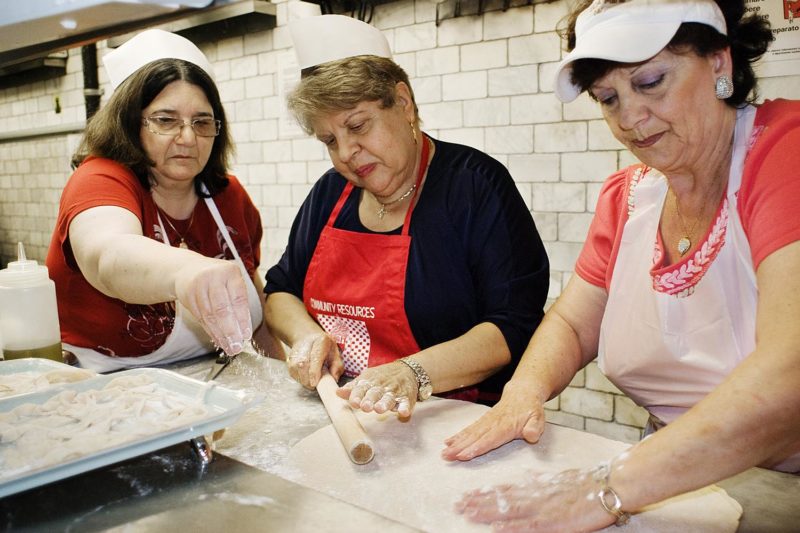
Nonnas Unite!
Just Like Grandma Used To Make
A rustic Staten Island restaurant features a rotating cast of homespun chefs: Grandmothers from all over the world whose recipes star on the menu.
So you’ve got polpette on the brain, those mouth-watering meatballs served in a classic Italian ragú with a side of homemade ricotta. Or maybe it’s a hankering for dengaku, the tender char-grilled eggplant brushed with miso glaze, sesame seeds, and Japanese spices. Turns out, you can satisfy your cravings in a jewelbox of a restaurant just a 20-minute ferry ride across New York Harbor, in Staten Island.
At Enoteca Maria, tucked away in the heart of Staten Island’s historic St. George district, the international fare rivals delicacies found anywhere in Manhattan, or even Naples or Morocco. Step inside, and owner Jody Scaravella (or “Joe”) will bustle out from behind the bar to greet you like an old friend, eyes twinkling above his salt-and-pepper beard.
Of Italian descent, but born and bred in Brooklyn, Jody had no prior restaurant experience when his grandmother, mother, and father died in quick succession. Searching for solace, he turned to the aromatic foods which enveloped his childhood: sauces bubbling in pots on the stove, pasta al forno, and meats braising in the oven. In 2007, he found a storefront in Staten Island, opened his enoteca, and named it after his mother, Maria.
Realizing his own grandmother, Dominica, had been the family’s repository of culinary culture, he recruited grandmothers from various regions of Italy as chefs with a classified ad: “We’re looking for grandmas to cook regional Italian food.”
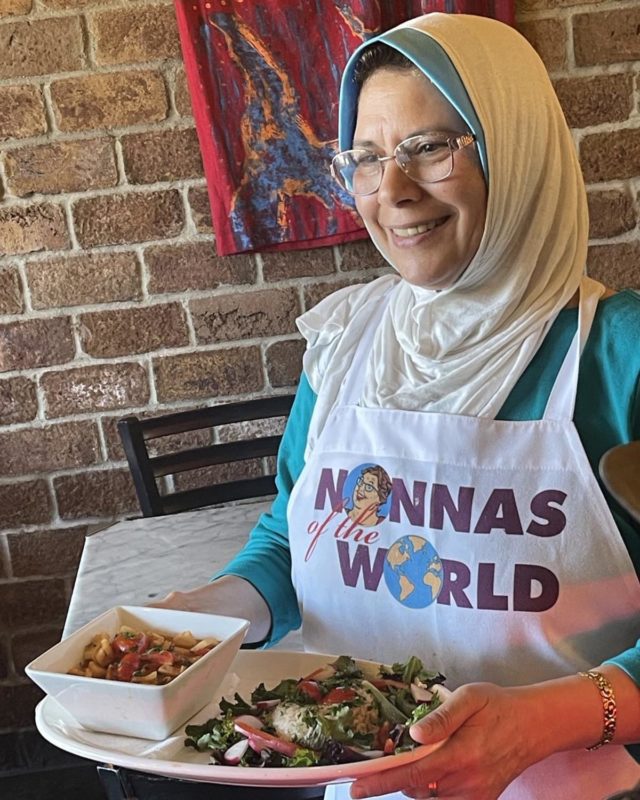
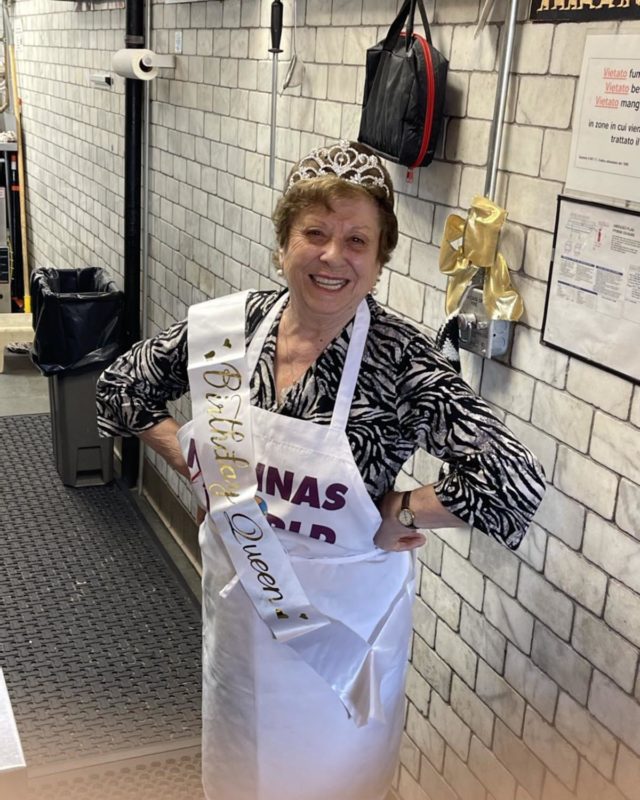
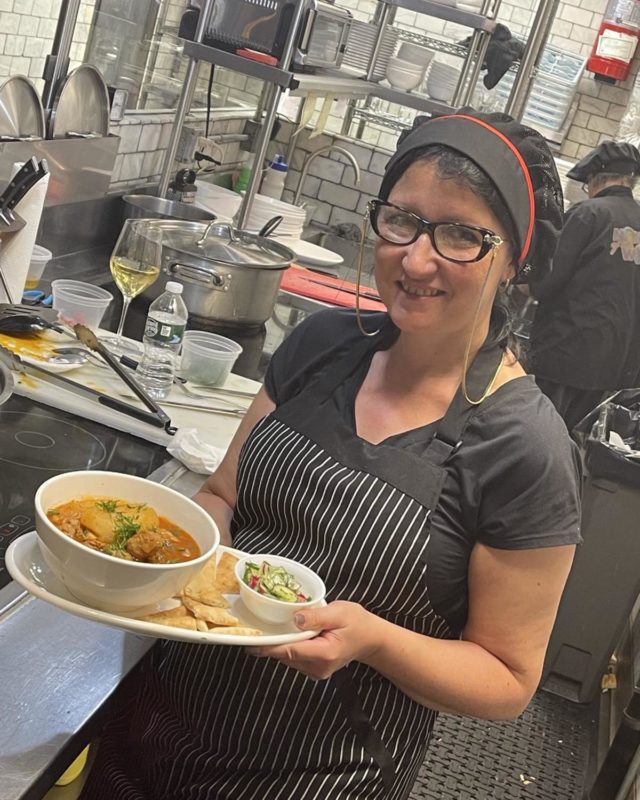
Soon, an assemblage of talented candidates lined up to introduce diners to Italy’s bountiful, diverse cuisines. Within a few years, Jody expanded the idea to include grandmothers from other countries—the nonnas of the world—each offering their own recipes.
Jody launched a successful cookbook and soon assimilated the new nonnas into the restaurant, reserving one side of the menu for Italian specialities, and the other for a rotating roster of international grandmas.
The basic criteria? Each “chef” had to be an immigrant of at least 50 years of age (no grandchildren required), willing to share recipes from her country of origin, and passionate about incorporating her culture and history into every slice and chop.
The restaurant has two kitchens. Downstairs are the Italian grandmothers, while the others work upstairs. Sometimes there’s one nonna up there, sometimes two, so diners can watch multiple cultures create magic side by side.
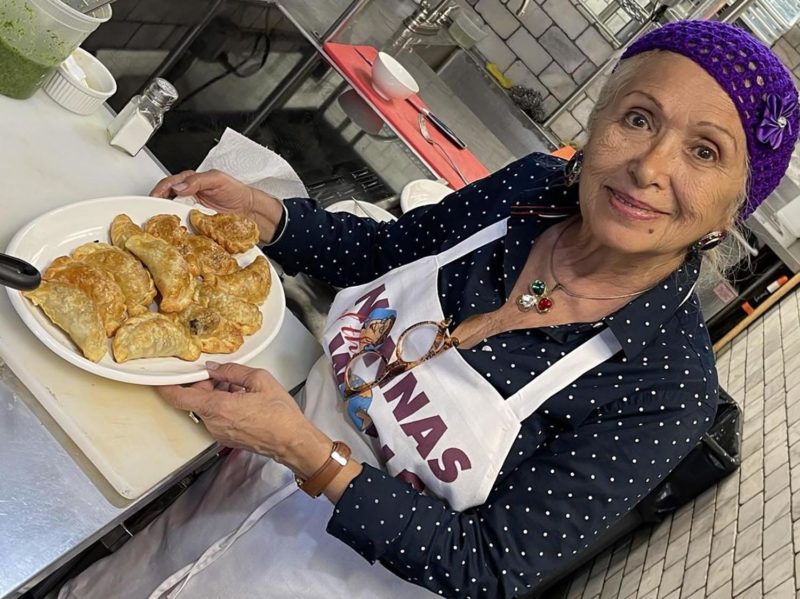

There are now over 30 nonnas, from Syria, France, Afghanistan, Puerto Rico, Egypt, Israel, Pakistan, Morocco, Palestine, Turkey, Trinidad and Tobago, Lebanon, Venezuela, and Colombia. They take turns cooking, communicating through spices, swapping stories, and passing on tastes and traditions.
At first Jody sourced his nonnas, but soon they started finding him. One Greek nonna, for example, turned up after she lost her spouse and her family wanted to get her out of the house and active again. She is now a regular in the kitchen.
As far as an interview? “It’s simple,” says Jody, who’s now in his early sixties himself. “I don’t ask them to cook. I sit down with each nonna and within five minutes, I know if they’re passionate about cooking.”
With the youngest at 50 and the eldest at 91, each grandmother decides how long she would like to stay (anywhere from one day to a month or more) and proposes her own recipes and ingredients. The women are all compensated for their work, and most live in the area. If one comes from out of state, room and board is covered.
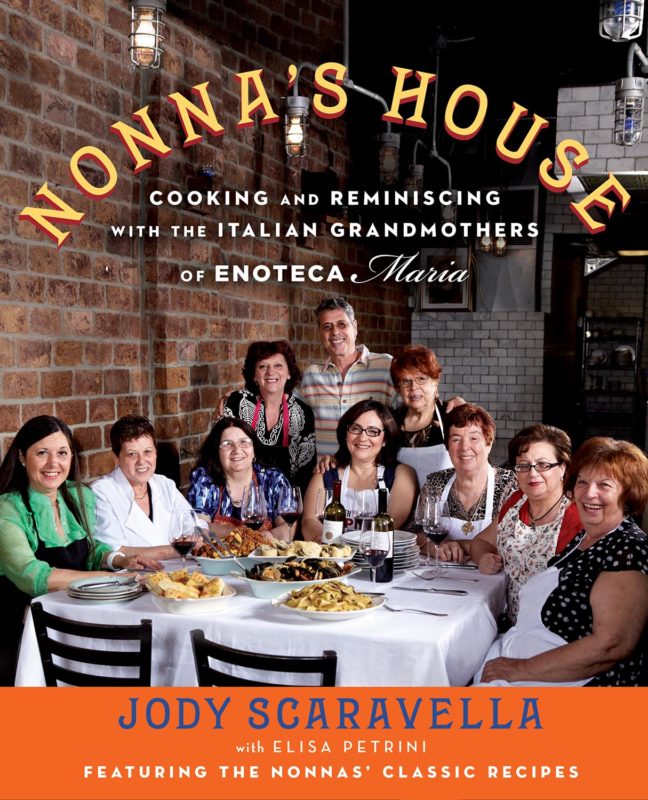
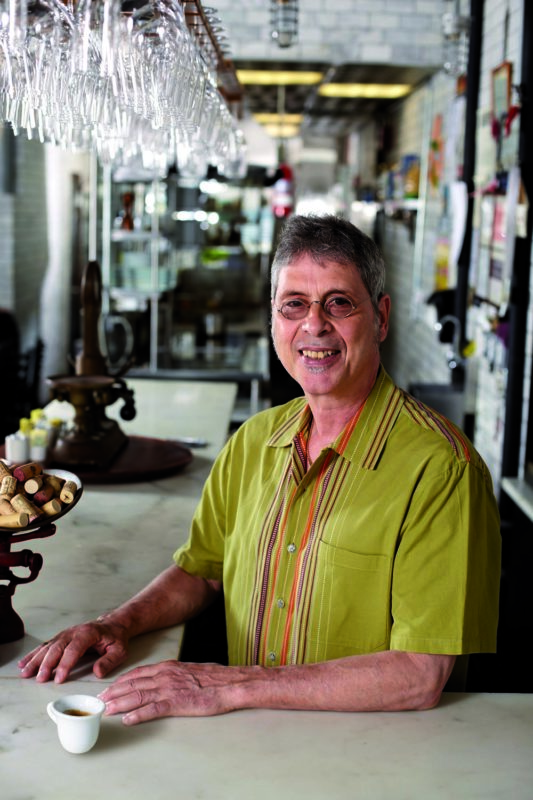
“The nonna from Azerbajian who was supposed to come in yesterday had to have an emergency appendix operation!” Jody exclaims with concern. “But she’s doing fine,” he continues as a nonna from Armenia unexpectedly walks in and drops off a freshly-baked cake.
As word of the nonnas spreads, diners from across New York City clamor to fill the 25-30 seats. But Jody relishes offering the so-called “poverty dishes” from the “older generation” when every single part of the meat was delectably consumed, yielding delicacies like his Sicilian grandmother’s Easter Capuzzelle (seasoned, stuffed and baked lamb’s head) or Egyptian fattah kawara (cow’s feet). These dishes, he explains, are increasingly popular because, when well-prepared, the meat is extremely tender and flavorful.
As for the nonnas, they take occasional breaks from cooking and mingle with diners, offer samples of other dishes, sit and chat, grab a hug, and sometimes even get standing ovations.
After the feast, the lovely five-minute walk back to the ferry and the digestive boat ride back to Manhattan are most welcome. The featured nonnas on your next visit remain a mystery, for now.
Enoteca Maria is located at 27 Hyatt Street on Staten Island. It’s open Friday, Saturday, and Sunday only. Each weekend’s culinary lineup is usually posted ahead of time on their Facebook page. Call (718) 447-2777 for reservations. Cash only.
Hero image ©2015 by Enoteca Maria Corp. from NONNA’S HOUSE by Jody Scaravella with Elisa Petrini published by Atria Books, a division of Simon & Schuster, Inc.



